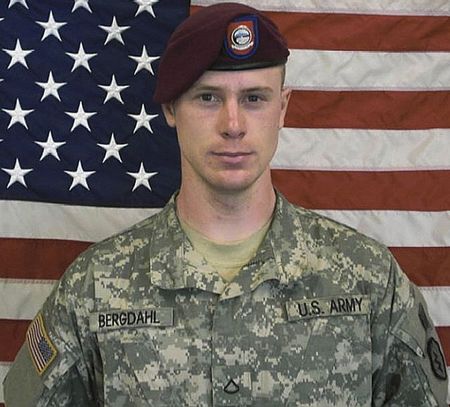By Laura Zuckerman
(Reuters) - Freed U.S. prisoner of war Bowe Bergdahl on Wednesday answered all questions put to him by the U.S. Army general investigating the circumstances leading to his capture by the Taliban, Bergdahl's attorney said.
The soldier from Hailey, Idaho was released in May in exchange for five Taliban prisoners who were taken to Qatar from the U.S. prison in Guantanamo Bay, Cuba.
The prisoner swap triggered an outcry from critics of the Obama administration amid accusations by some members of Bergdahl's Army unit that he had deserted before being captured by the Taliban.
Lawyer Eugene Fidell said his client was expected to face more questions in Texas on Thursday from Major General Kenneth R. Dahl, the officer probing the Army sergeant's disappearance in 2009 from a combat outpost in Afghanistan.
On Wednesday, Bergdahl described events leading to his capture for the bulk of eight hours, said Fidell, who declined to provide details of what the former prisoner said.
Fidell said the session at Joint Base San Antonio-Fort Sam Houston included several questions by Dahl but mostly consisted of a lengthy narrative by Bergdahl.
"It was a very productive day for my client and for the U.S. Army," said Fidell. "Sergeant Bergdahl answered every question put to him."
Fidell, a military law expert who lectures at Yale University, and a military defence attorney are representing Bergdahl in an inquiry that was to wrap up 60 days from the time of Dahl's June 16 appointment.
A senior Army officer has said the probe aimed to determine facts surrounding Bergdahl's disappearance up to the point of imprisonment by captors whom Fidell has termed "ruthless killers".
Dahl is charged with trying to find out how Bergdahl came to be away from his post and captured by the Taliban. He will take into consideration Bergdahl's explanation, along with information from others, and make recommendations on whether the former prisoner broke any military laws.

Bergdahl was assigned a desk job at the Texas military base after completing counselling and a reintegration programme.
(Reporting by Laura Zuckerman in Salmon, Idaho; Editing by Sharon Bernstein and Clarence Fernandez)
